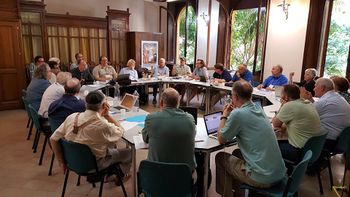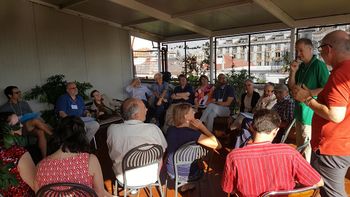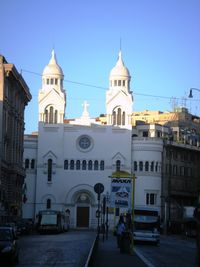The Early Reception of Paul the Jew / 7th Nangeroni Meeting (2016 Rome), conference
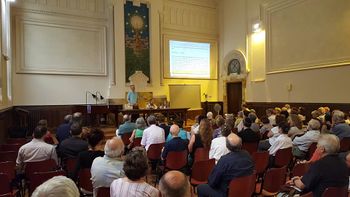
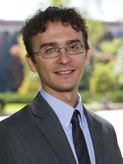
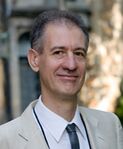
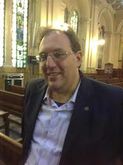
The Early Reception of Paul the Jew / Seventh Nangeroni Meeting (2016) is the topic of the 7th conference in the series of Nangeroni Meetings organized by the Enoch Seminar in Rome, Italy (June 26–30, 2014).
< 1st (Milan 2012) -- 2nd (Israel 2014) -- 3rd (Rome 2014) -- 4th (Milan 2015) -- 5th (Naples 2015) -- 6th (Camaldoli 2016) -- 7th (Rome 2016) -- 8th (Florence 2017) -- 9th (Milan 2018) -- 10th (Rome 2018) >
7th Nangeroni Meeting (Rome, Italy; June 26-30, 2016)
- Chair: Isaac W. Oliver, Bradley University
- Co-Chair: Gabriele Boccaccini, University of Michigan
- Co-Chair: Eric Noffke, Waldensian Faculty of Theology
Paul was no doubt a complex Second Temple Jewish thinker whose figure, writings, and ideas were repeatedly appropriated and recast in various ways by his earliest interpreters. The study of the reception history of Paul during the first two centuries of the Common Era has traditionally been performed without sufficient appreciation for the Jewish matrix and heritage of early Christianity, built on the assumption that Paul had forsaken his Jewishness after “converting” to “Christianity” and that “the ways had already parted” between all Jews and Christians once the first generation of Jesus’ Jewish followers had passed away. The following seminar will focus on the earliest reception of Paul by assessing how his first interpreters handled and perceived his relationship to Judaism within the broader framework and scholarly study of early Jewish-Christian relations. Special attention will be granted to the interpretation of Jewish themes in the early reception history of Paul such as Torah observance and Jewish-Gentile relations. The seminar will seek to uncover the neglected Jewish strata of Paul’s Wirkungsgeschichte during the first two centuries of the Common Era in an attempt to comprehend the complex and diverse nature of Jewish-Christian relations at the time. A wide spectrum of writings and figures from right after Paul’s time until roughly the end of the second century CE will be assessed, including, to name just a few: Marcion and his recasting of Paul’s thought over against Judaism, the depiction of Paul as a Torah observant Jew in the Acts of the Apostles, the denunciation in the Pastoral Letters of “Jewish myths” (e.g., Titus 1:10–16; 3:9), the condemnation of Paul as an apostate Jew (“anti-Paulinism”) in writings such as the Pseudo-Clementines, the handling of Jewish-Gentile relations in Deutero-Pauline Epistles such as Ephesians, as well as the relationship between Pauline teachings and canonical gospels such Matthew. An edited volume containing chapters written by the participants of the conference on the relevant primary sources will be published with the aim of serving as a reference on the topic. For further information, including paper proposals, please contact Isaac W. Oliver at ioliver@bradley.edu.
Advisory Board
- Gabriele Boccaccini, University of Michigan – Ann Arbor
- Robert B. Foster, Madonna University
- Isaac W. Oliver, Bradley University
- Eric Noffke, Waldensian School of Theology
Confirmed Participants
- Albert I. Baumgarten, Bar Ilan University: Respondent
- Giovanni Bazzana, Harvard University: Pseudo-Clementines and Paul
- Gabriele Boccaccini, University of Michigan (co-chair)
- Daniel Boyarin, University of California – Berkeley: Mark and Paul
- William S. Campbell, University of Wales – Trinity Saint David: Ephesians and Paul
- George Carras, Washington and Lee University: The Acts of the Apostles and Paul
- James C. Charlesworth, Princeton Theological Seminary: The Acts of the Apostles and Paul
- David J. Downs, Fuller Theological Seminary: 2 Peter and Paul
- Kathy Ehrensperger, University of Wales – Trinity Saint David: The Pastorals and Paul
- Robert B. Foster, Madonna University (advisory committee): Ephesians and Paul
- Gabriella Gelardini, University of Basel: The Letters to the Hebrews and Paul
- Anders Klostergaard Petersen, Aarhus University: Colossians and Ephesians
- Judith Lieu, Cambridge University: Marcion and Paul
- Harry O. Maier, Vancouver School of Theology: 1 Clement and Paul
- Eric F. Mason, Judson University: Respondent
- Simon Claude Mimouni, École pratique des hautes études: Paul, James, and Peter in Acts
- David Nienhuis, Seattle Pacific University: Letter of James and Paul
- Eric Noffke, Waldensian School of Theology (advisory committee): Ephesians and Paul
- Isaac W. Oliver, Bradley University (chair): The Acts of the Apostles and Paul
- Ilaria L.E. Ramelli, Catholic University, Milan: Paul and Seneca
- Yann Redalié, Waldensian School of Theology: The Pastorals and Paul
- David Rudolph, The King’s University: The Acts of the Apostles and Paul
- Timothy B. Sailors, Tübingen (discussant)
- David Sim, Australian Catholic University: Matthew and Paul
- Matthew Thiessen, Saint Louis University: Ephesians and Paul
- James Waddell, Ecumenical Theological Seminary: Colossians and Paul
- Benjamin White, Clemson University: Justin Martyr and Paul
- Joel Willits, North Park University: Revelation of John and Paul
- Ziony Zevit, American Jewish University
Provisional Schedule
Sunday, June 26, 2016
8:00-15:00 -- Arrivals
17:00 -- Welcome (Hotel Casa Valdese)
18:00-19:30: Opening Session
Gabriele Boccaccini, Opening and Welcome
Isaac W. Oliver, The Reception of Paul the Second Temple Jew
20:00 -- Dinner (Hotel Casa Valdese)
Monday June 27, 2016
8:00 -- Breakfast
9:00-12:30 -- Morning Sessions -- Paul and the Deutero-Pauline Epistles: Ephesians (Isaac W. Oliver, Chair)
- William S. Campbell, You were afar off, but were brought near: Ethne-in-Christ according to Ephesians (5-10mn)
- Robert B. Foster, Ephesians and Paul, The Mystery of Israel in Ephesians (5-10mn)
- Matthew Thiessen, The Jewish Paul’s Construction of Gentiles in the Letter to the Ephesians (5-10mn)
- Eric Noffke, Ephesians in the Jewish Political Debate of the First Century: Rethinking Paul’s Approach in Facing New Challenges (5-10mn)
Anders Klostergaard Petersen, Respondent (15-30 mn)
10:15-10:25: Break
10:25-12:30: Roundtable Discussion of Morning Session Papers
12:45 - Lunch (Hotel Casa Valdese)
14:15–18:00 -- Afternoon Sessions -- Paul and the Deutero-Pauline Epistles (Gabriele Boccaccini, Chair)
14:15-15:05: Anders Klostergaard Petersen, The Traditionalisation of Paul. A Weberian Perspective on Colossians and Ephesians
15:05-15:55 James Waddell, Colossians and Paul, The Shadow and the Substance: Early Reception of Paul the Jew in the Letter to the Colossians
15:55-16:05: Break
16:05-17:05: Kathy Ehrensperger, Didaskalos Ethnwn: Pauline Trajectories according to 1 Timothy
18:15pm (public lecture): Daniel Boyarin: Moses in Mark and Paul: When Mark Isn't Pauline (Waldensian Faculty)
Free Dinner
Tuesday, June 28, 2016
8:00 -- Breakfast
9:00-12:30 -- Morning Sessions -- Paul’s Opponents (Isaac W. Oliver, Chair)
- David Sim, Jew against Jew: The Reception of Paul in Matthew’s Christian Jewish Community (5-10mn)
- Giovanni Bazzana, Pseudo-Clementines and Paul (5-10mn)
- Joel Willits, Paul and John of Patmos – Friends, Foes, Or?: A Consideration of the Relationship Between the Paul of the Letters and the Author of the Apocalypse (5-10mn)
Albert Baumgarten, Respondent (20-30mn)
10:15-10:25: Break
10:25-12:30: Discussion of Morning Session Papers
12:45 -- Lunch (Hotel Casa Valdese)
13:45 -- Afternoon Bus Tour to the Hadrian Villa in Tivoli, near Rome and dinner at a restaurant in Tivoli.
22:30 -- Return from Tivoli.
Wednesday, June 29, 2016
8:00 -- Breakfast
9:00–12:30 -- Morning sessions -- Paul and The Acts of the Apostles (Gabriele Boccaccini, Chair)
- James C. Charlesworth, Why Ignore Acts in Pauline Research? (5-10mn)
- Simon Claude Mimouni, Le conflit inter-judéen (halakhique) entre Paul, Jacques et Pierre dans la réception des Actes des Apôtres (5-10mn)
9:20-10:25: Discussion
10:25-10:35: Break
- G. P. Carras, Jewish Sensibilities and the Search for the Jewish Paul: A Recasting by Luke in Acts of Paul of His Undisputed Letters? (5-10mn)
- Isaac W. Oliver, The First Radical Perspective on Paul: Paul’s Calling in the Acts of the Apostles (5-10mn)
- David Rudolph, Luke’s Portrait of Paul in Acts 21:17–26 (5-10mn)
Discussion: 10:55-12:30
12:45 -- Lunch (Hotel Casa Valdese)
14:30–18:00 -- Afternoon Sessions -- Paul and Marcion (Isaac W. Oliver, Chair)
Free Dinner
- Judith Lieu, Marcion, Paul and the Jews (5-10 mn)
- Ilaria L.E. Ramelli, Paul’s Problematic Relation to Judaism in the Seneca-Paul Original Correspondence (2nd Century CE?) (5-10mn)
- David Nienhuis, Reading James Receiving Paul: A Literary-Canonical Analysis (5-10mn)
- Benjamin White, Gentile Judaizing in the Dialogue with Trypho 47: A Test Case for Justin’s Reception of Paul (5-10mn)
15:25-15:35: Break
15:35-17:35: Discussion of Afternoon Session Papers
Free Dinner
Thursday, June 30, 2016
8:00 -- Breakfast
9:00–12:30 -- Closing session (Gabriele Boccaccini, Chair)
- Gabriella Gelardini, “As if by Paul” – Some Remarks on the Textual Strategy of Hebrews (5-10mn)
- David Downs, The Scripturalization of “Our Beloved Brother” Paul’s Letters in 2 Peter (5-10mn)*
- Harry O. Maier, Paul, the Greek Old Testament, and the Promotion of the Flavian Order in 1 Clement (5-10mn)
Respondent, Eric F. Mason (20-30 mn)
10:10-10:20: Break
10:20-12:00: Discussion of Morning Session Papers
12:00-12:30: Final Comments
12:45 -– Lunch & Farewells (Hotel Casa Valdese)

